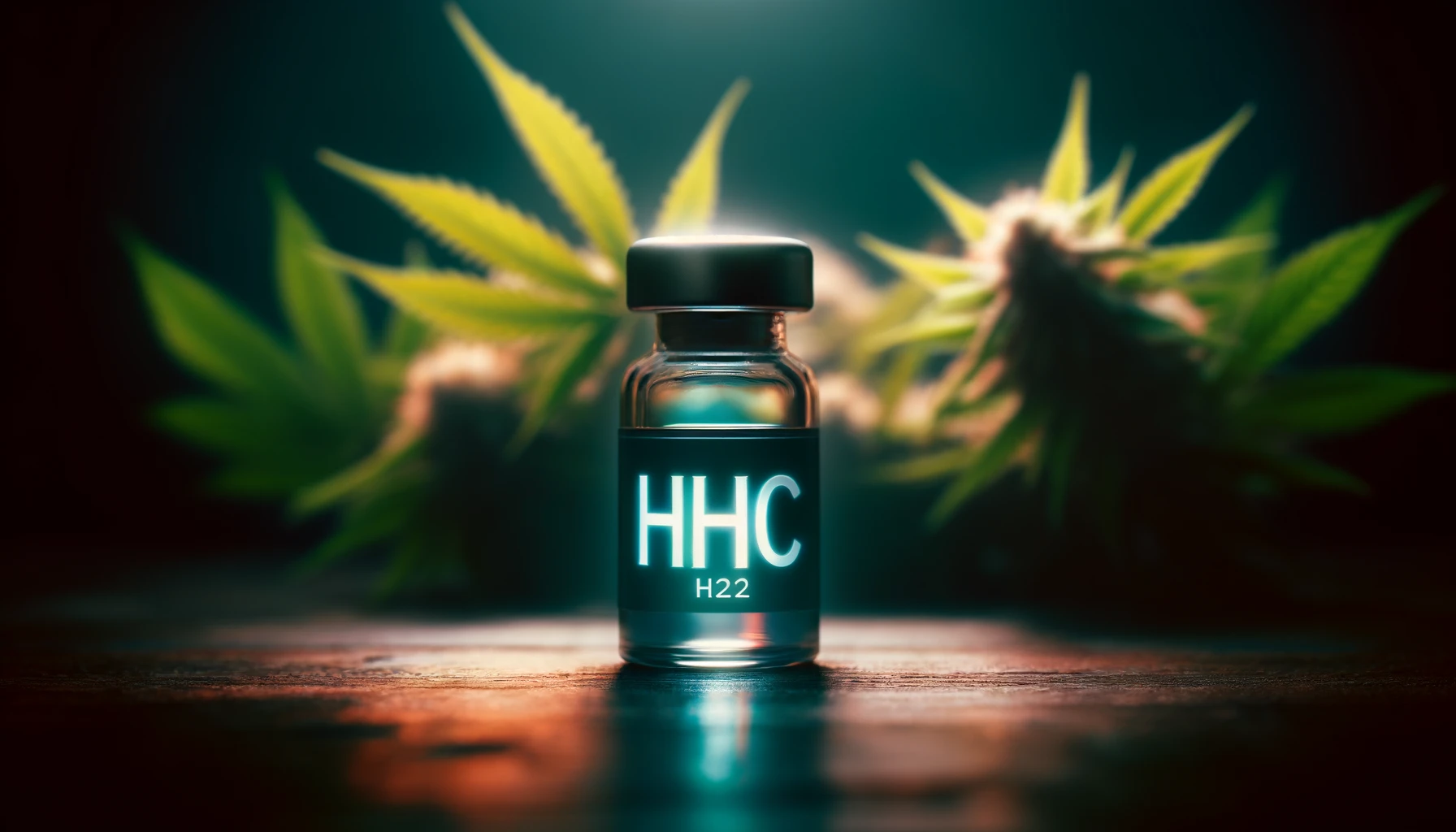In the ever-evolving universe of cannabinoids, new discoveries and thrilling advancements are always on the horizon. The latest buzzword in the cannabis world is Hexahydrocannabinol, otherwise known as HHC. But what’s really behind this substance? Is it a safe, legal alternative to THC? In this blog post, you’ll find out everything you need to know about HHC, and why it might not be the best choice for your cannabinoid fix.
The Lowdown for Those Short on Time
HHC is a somewhat uncharted cannabinoid that acts similarly to THC but carries certain risks and side effects. The quality of HHC products can vary greatly, and scamming is not uncommon. Its effects can be influenced by individual reactions, dosage, and method of intake. It’s vital that you conduct thorough research and exercise caution.
So What Exactly is HHC?
Hexahydrocannabinol (HHC) is a semi-synthetic cannabinoid derived from THC through a process known as hydrogenation. This means it doesn’t naturally occur in the cannabis plant but is artificially produced from THC. Although HHC was first synthesized in 1947, we still know relatively little about it. Unlike THC and CBD, HHC is a man-made cannabinoid, which brings with it some uncomfortable realities. The hydrogenation of THC results in a chemically similar molecule that can no longer be classified as THC. Since HHC is synthesized from THC, it’s categorized as a semi-synthetic cannabinoid.
How Do People Consume HHC?
HHC is available in various formats such as oil, hash, liquid (for vapes or e-cigarettes), or edibles. There aren’t any pure HHC flowers or industrial hemp, as the cannabinoid must first be converted from other cannabinoids. However, there are providers of CBD flowers laced with Hexahydrocannabinol, which are then marketed as HHC flowers.
The fact that HHC is synthetically produced in labs without specific production guidelines or quality checks poses inherent risks. None of the sellers can provide information about dosage, origin, interactions, or the risk of psychosis in predisposed individuals. Consumers are therefore in the dark about what exactly they are consuming and where it comes from.
The Effects of HHC – Is it Really Harmless?
HHC is thought to provoke similar effects to THC but with a decreased psychoactive impact. Sounds promising, right? However, there’s very little information currently available regarding the effects of HHC. The scant knowledge we have is based solely on anecdotal evidence from users, and this leaves a lot of room for speculation.
Some users report calming and relaxing effects, but without solid scientific data, it’s challenging to make definitive statements about safety and potential side effects. This means that HHC consumers are stepping into the unknown and assuming potential risks. There have also been reports that HHC can produce an unpleasant effect at higher doses, which some users find distressing. The long-term consequences of HHC use are entirely unknown at this point, indicating that we need to learn much more before labeling it as a safe alternative to THC.

Potential Side Effects and Risks of HHC
Given the lack of information currently available on HHC, creating a comprehensive list of side effects or risks is no easy task. However, we can draw on consumer experiences and the few existing studies to paint a tentative picture. Some users have reported dizziness, nausea, paranoia, anxiety, and restlessness as potential side effects of HHC. At higher doses, it can also lead to racing heart and high blood pressure. Given the absence of long-term studies on HHC use, it’s crucial to exercise caution and be aware of potential risks before deciding to consume it.
The Hidden Perils of HHC-O, THC-O, and Other Acetates
Let’s have a chat about something other than HHC for a moment. There’s this lesser-known substance that goes by the name HHC-O. It’s an acetate and let me tell you, it can be nasty. When you heat it up, it lets off toxic compounds like ketene, which can cause respiratory issues and in worst cases, lung failure. Long story short, messing with HHC-O isn’t exactly a stroll in the park health-wise. And it’s not only HHC-O that’s a potential landmine. Acetates like ∆9-THC-O and ∆8-THC-O are also guilty of releasing ketenes when they hit high temperatures. We strongly advise our friends to steer clear of anything from the so-called “O-Line”.
HHC and its Side Effects: Need-to-know Facts
As we’ve already touched upon, HHC is a bit of a mystery visitor in the cannabinoid family. This means we’re still piecing together the puzzle of its side effects and potential risks. But some patterns have surfaced already among those who’ve given HHC a whirl. Here’s what you should be aware of:
First off, everyone reacts differently to cannabinoids. Individual responses to HHC are no exception – they can vary wildly from person to person. But some side effects crop up more frequently than others, including:
- Dry Mouth
- Red Eyes
- Dizziness
- Rapid Heartbeat
- Headaches
- Insomnia
- Anxiety and Paranoia

We’re All Unique – Different Side Effects for Different People
The severity and duration of these side effects can fluctuate depending on a host of factors such as the amount of HHC consumed, an individual’s tolerance level, and the method of HHC intake. Let’s delve a bit deeper into this.
One key factor playing a role in HHC side effects is dosage. More often than not, a higher dose will ramp up the likelihood and intensity of side effects. If you’re a rookie, it’s wise to kick off with a small dose and gradually increase it to keep any unpleasantries at bay.
How you take HHC also has a say in how intense and long-lasting the side effects could be. For instance, smoking or vaping HHC leads to quick absorption of active ingredients, meaning side effects pop up faster. On the other hand, edibles and other oral forms of HHC take longer to kick in but can keep you in discomfort for an extended period.
Your individual tolerance to HHC can also affect the side effects you experience. Folks who regularly enjoy cannabis or other cannabinoids may have built up a higher tolerance to HHC and thus experience lesser side effects. Conversely, those sensitive to cannabinoids may feel the side effects of HHC more acutely.
In conclusion, if you plan to explore HHC, it’s crucial to be aware of the potential side effects and tread carefully. Remember, everyone’s reaction to HHC will differ, and it’s always best to start with a low dose and consider your intake method.
Final Thoughts: Is Dabbling in HHC Worth It?
At first glance, HHC might seem like an exciting detour from THC and CBD. But let’s not beat around the bush – we don’t know much about it yet. The little info and anecdotal evidence we have don’t suffice to give HHC a clean bill of health. Given the uncertainties and potential side effects, it’s always smart to err on the side of caution and deeply ponder before trying out HHC.
Knowing what you’re getting into is key when it comes to consuming any products, especially cannabinoids. If HHC or any other cannabinoids pique your interest, do your homework thoroughly before deciding to try them out.
HHC is a semi-synthetic cannabinoid derived from THC via hydrogenation, not naturally occurring in cannabis plants, and carries similar but milder effects compared to THC.
Due to limited research and varying product quality, HHC’s safety is not well-established. Users should approach with caution and be aware of potential risks and side effects.
Users have reported side effects such as dizziness, nausea, paranoia, anxiety, and in high doses, increased heart rate and blood pressure.
HHC can be found in oils, hash, vape liquids, and edibles. Pure HHC flowers do not exist because HHC must be synthetically produced from other cannabinoids.
It’s unclear how HHC metabolizes and whether it can be detected by standard drug tests. Users should consider this uncertainty in contexts where drug testing is a concern.
Research thoroughly, start with a low dose to gauge your personal reaction, and consider legal implications in your area, as the regulatory status of HHC can vary.









